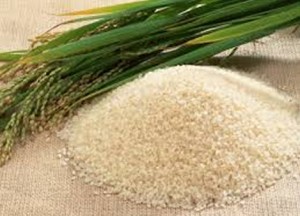Africa Rice Center launches new project to improve food security
 An African research center has launched a new rice project that targets to benefit 300,000 households in Kenya, Uganda and Madagascar.
An African research center has launched a new rice project that targets to benefit 300,000 households in Kenya, Uganda and Madagascar.
The project which is expected to enhance income and food security will adopt appropriate rice technologies and innovations to address emerging rice value chain constraints, Africa Rice Center said on Monday.
The project will run for three years, said Paul Kiepe, head of research planning and coordination with the Africa Rice Center.
He added that the project is expected to improve productivity and competitiveness of domestic rice.
“The project is aimed at contributing to the development of the rice value chain in East Africa with focus to women and youths,” Kiepe said during the launch in Nairobi.
He added that the project will involve multi stakeholders’ innovation platforms in strengthening functional linkages among rice value chain actors and to improve capacity of farmers.
Kiepe observed that since Kenya has risen to be the newest middle-income country in the region, the country must seriously act to increasing its production and reduce the huge import dependency.
“The project will generate ample cross country learning cases, and indicate forms of collaboration that will effectively and sustainably contribute to each country’s growth and the rice development in the region,” he added.
The researcher said that the private sector will be involved in the production and dissemination of new varieties to be widely adopted by the farming community. The project that is funded by the International Fund for Agricultural Development is meant at improving the local supply of rice since the East African region imports the commodity amounting to $500 million.
“The project will help Kenya achieve 100 per cent food and nutrition security of populations, create employment and wealth to many stakeholders,” Mwangi Kiunjuri, cabinet secretary for agriculture, livestock and fisheries.
Kiunjuri noted that it is expected that the project will help Kenya meet the deficit that stands at 400,000 metric tons annually since farmers locally produce 70,000-80,000 metric tons annually.
He noted that Kenya has the potential and capacity if harnessed to not only be self- sufficient in rice but to also be an exporter.
Source: GNA
